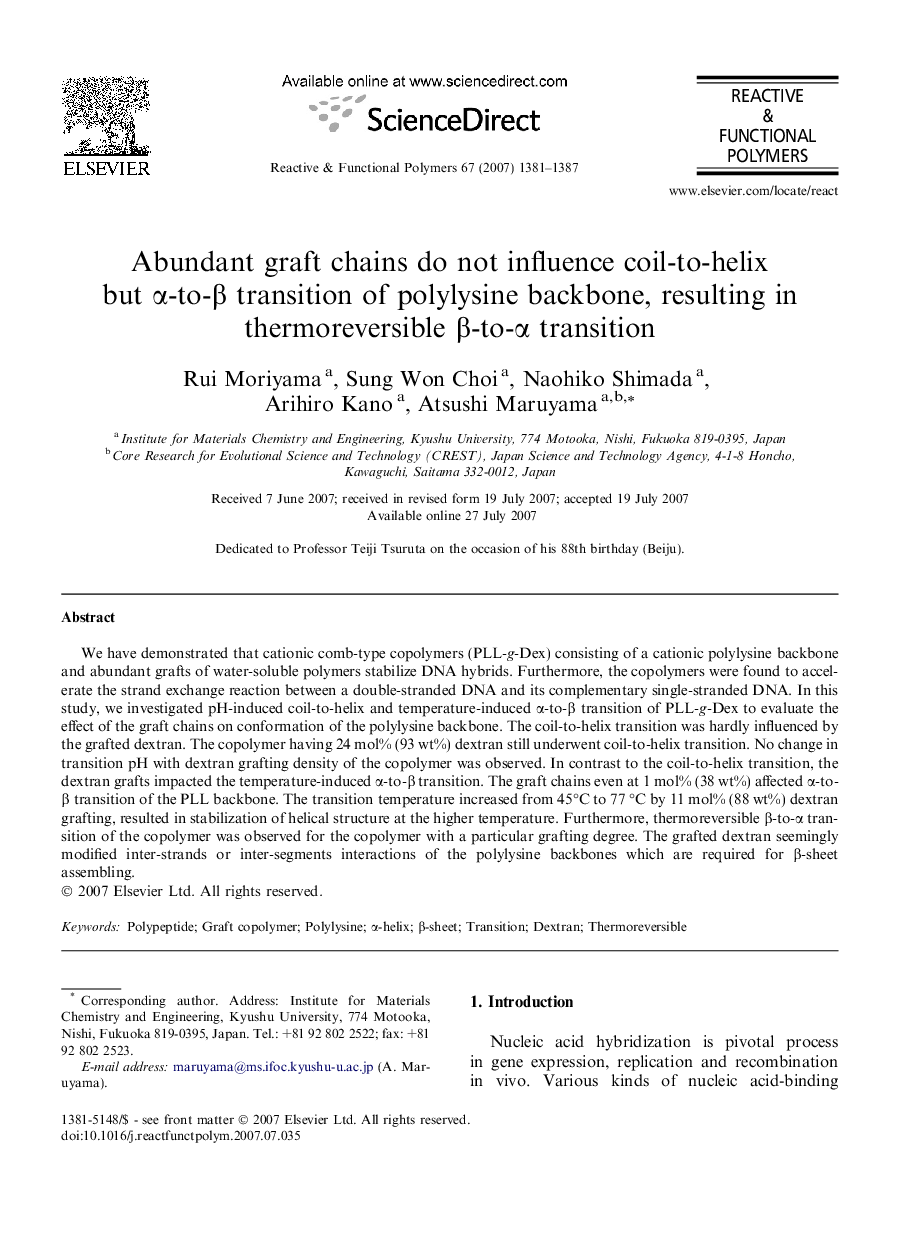| Article ID | Journal | Published Year | Pages | File Type |
|---|---|---|---|---|
| 5211602 | Reactive and Functional Polymers | 2007 | 7 Pages |
We have demonstrated that cationic comb-type copolymers (PLL-g-Dex) consisting of a cationic polylysine backbone and abundant grafts of water-soluble polymers stabilize DNA hybrids. Furthermore, the copolymers were found to accelerate the strand exchange reaction between a double-stranded DNA and its complementary single-stranded DNA. In this study, we investigated pH-induced coil-to-helix and temperature-induced α-to-β transition of PLL-g-Dex to evaluate the effect of the graft chains on conformation of the polylysine backbone. The coil-to-helix transition was hardly influenced by the grafted dextran. The copolymer having 24 mol% (93 wt%) dextran still underwent coil-to-helix transition. No change in transition pH with dextran grafting density of the copolymer was observed. In contrast to the coil-to-helix transition, the dextran grafts impacted the temperature-induced α-to-β transition. The graft chains even at 1 mol% (38 wt%) affected α-to-β transition of the PLL backbone. The transition temperature increased from 45°C to 77 °C by 11 mol% (88 wt%) dextran grafting, resulted in stabilization of helical structure at the higher temperature. Furthermore, thermoreversible β-to-α transition of the copolymer was observed for the copolymer with a particular grafting degree. The grafted dextran seemingly modified inter-strands or inter-segments interactions of the polylysine backbones which are required for β-sheet assembling.
